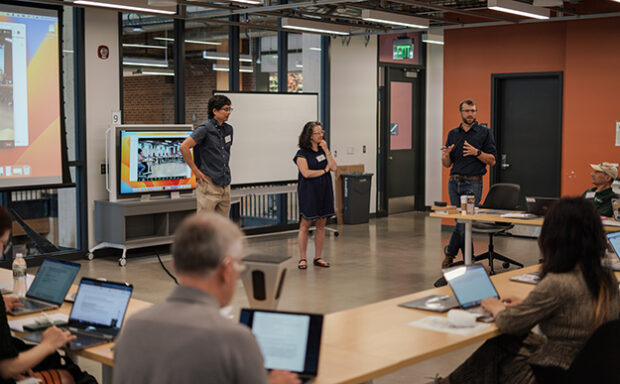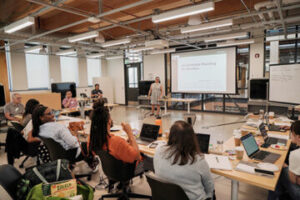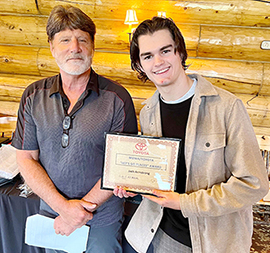
Eric Freedman
By Eric Freedman
Director, Knight Center for Environmental Journalism
There’s nothing like almost dying to wake you up to the multiple realities of America’s health care system.
I nearly died in April from a still-unidentified collapse and its complications, including pneumonia, blackouts, heavy bleeding, liver damage and ICU delirium during seven weeks at Detroit’s Henry Ford Hospital, four of them on a ventilator.
I have no memory of my first five weeks there.
When it first happened, my children and grandchildren arrived from four states, although I don’t remember their visit or their encouraging words.
For me, the experience highlighted the fragility of life and our vulnerability to sometimes-inexplicable health crises, regardless of how well we’ve taken care of ourselves: eaten – mostly – right, exercised and had regular medical exams and tests.
Beyond that, however, came deeper insights about inequities in the American medical system, starting with access to and the high cost of care.
Medical expenses can push patients and their families without good health insurance, Medicare, Medicaid or VA benefits into a devastating choice between bankruptcy on one hand and foregoing lifesaving treatment on the other hand.
Talk about sticker shock. The retail price – the bottom line – for two days at Lansing’s Sparrow Hospital, where my arduous medical journey began in the emergency department: $87,748. The ambulance transfer while I was comatose and in critical condition from Sparrow to Henry Ford Hospital’s ICU: $13,520. Continue reading

 Michigan State University has become the hub of an exciting initiative as the SciComm Identities Project (SCIP) workshop on science communication begins today and runs until the end of the week. A group of 10 SCIP fellows have embarked on a transformative journey, aiming to deepen their understanding of podcasting, gain expertise in media relations, and apply this knowledge to their academic endeavors
Michigan State University has become the hub of an exciting initiative as the SciComm Identities Project (SCIP) workshop on science communication begins today and runs until the end of the week. A group of 10 SCIP fellows have embarked on a transformative journey, aiming to deepen their understanding of podcasting, gain expertise in media relations, and apply this knowledge to their academic endeavors The participants of the workshop spent the day engrossed in a variety of activities designed to enhance their skills. They delved into the realm of storytelling tools, refining their creative writing abilities and engaging in stimulating discussions on applying effective media strategies to effectively communicate their research.
The participants of the workshop spent the day engrossed in a variety of activities designed to enhance their skills. They delved into the realm of storytelling tools, refining their creative writing abilities and engaging in stimulating discussions on applying effective media strategies to effectively communicate their research.
 With the SCIP workshop now underway, the fellows are set to acquire invaluable skills and knowledge that will empower them to effectively communicate scientific concepts and research findings to a wider audience. This initiative is a testament to the commitment of Michigan State University and its partner institutions in fostering a more inclusive and diverse science communication landscape.
With the SCIP workshop now underway, the fellows are set to acquire invaluable skills and knowledge that will empower them to effectively communicate scientific concepts and research findings to a wider audience. This initiative is a testament to the commitment of Michigan State University and its partner institutions in fostering a more inclusive and diverse science communication landscape.